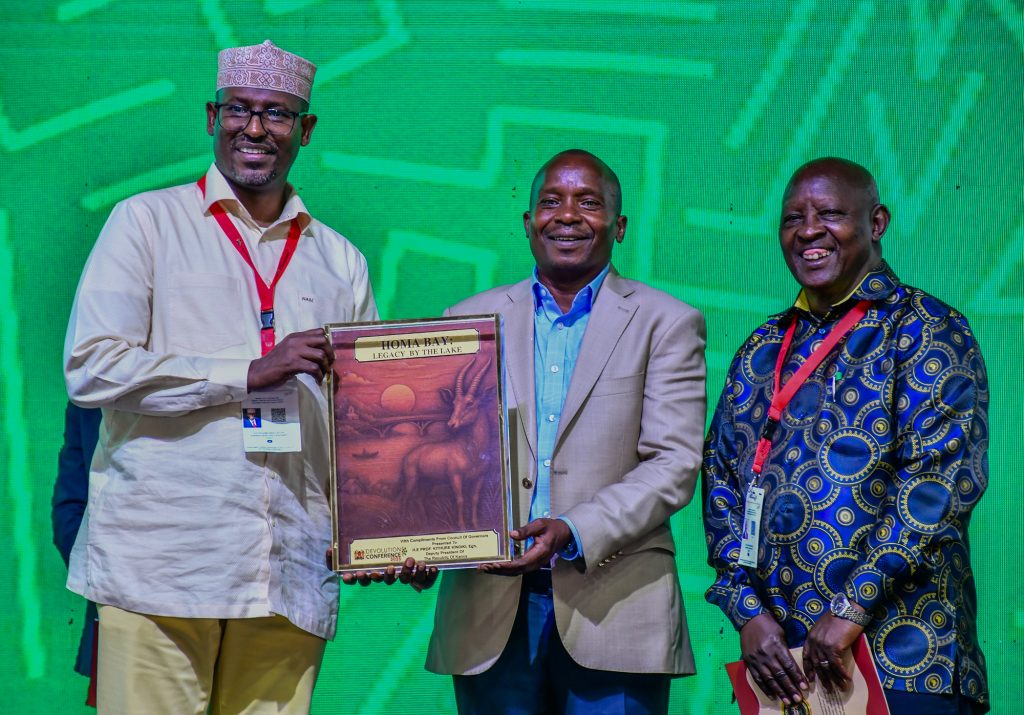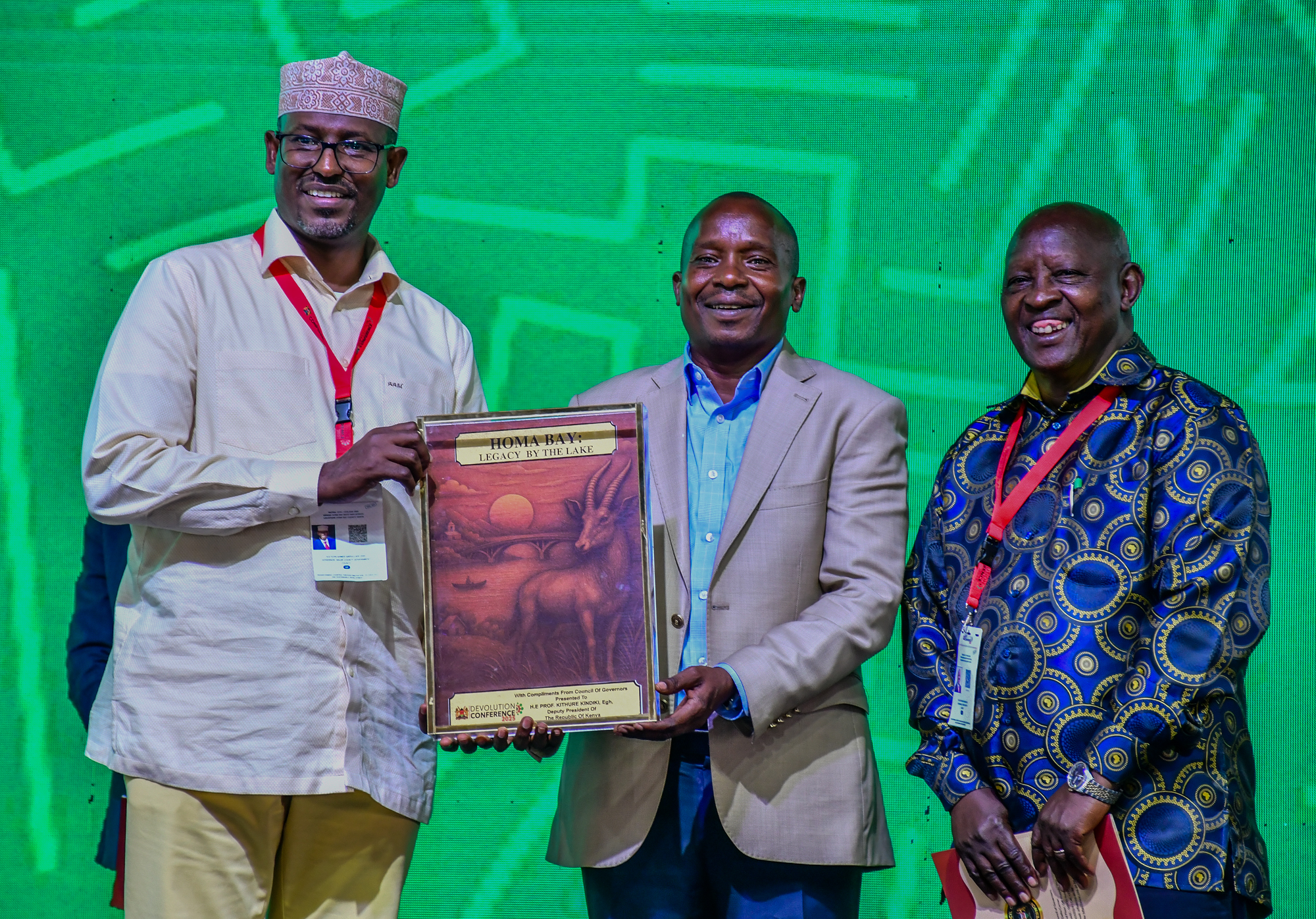
The 9th Devolution Conference officially came to an end on Friday, 15th August marking the conclusion of robust 3-day engagements on matters devolved governance and the beginning of an even greater task – implementation of the resolutions agreed upon during the conference by all relevant actors.
Delivering the keynote speech, Deputy President H.E Prof. Kithure Kindiki highlighted that all stakeholders have a role to play in implementation of the commitments made. “Devolution is more than a constitutional requirement, it is a moral duty to make sure prosperity reaches every corner of our nation”.
He urged both National and County Government leaders, alongside the private sector, civil society and development partners, to translate the conference resolutions into tangible action, with progress to be monitored every six months over the next two years.
CoG Chief Whip and Nandi Governor Stephen Sang expressed gratitude to delegates, development partners and the host County for their contributions to the success of the conference. “The spirit of partnership and unity we have witnessed here in Homa Bay is the true driver of people-centered devolution. These resolutions will only matter if we walk together to translate them into action in our Counties,” he said, noting that collaboration among leaders was a clear demonstration of Kenya’s collective commitment to equity and inclusion.
The three-day forum brought together policymakers, leaders from across the country, development partners and grassroots representatives to reflect on Kenya’s devolution journey and chart a path for stronger fiscal discipline, inclusivity and resilience. The Final day of the conference centered on one of the most pressing questions for Kenya’s devolved system of governance – how to finance equity and inclusion in a way that leaves no County behind and ensures effective equitable service delivery.
“Funds should follow functions and where the funds are held by the National Government agencies, they should be released to Counties,” reiterated Homa Bay Governor Gladys Wanga.
During the closing ceremony, the Council of Governors (CoG) in collaboration with Food4Education launched the model pre-primary school feeding policy for County Governments. The policy seeks to institutionalize school meals within County planning and financing frameworks, recognizing that hunger remains a major barrier to learning for many children, especially from vulnerable backgrounds. By ensuring that every child has access to nutritious meals in school, the policy is expected to improve attendance, enhance concentration and promote better learning outcomes.
There were key resolutions arrived at during the conference across various sectors. On Early Childhood Development (ECD) services, both levels of Government, working with education, health and agriculture stakeholders, committed to scaling up financing for ECD as the foundation for long-term growth. The private sector was also challenged to scale up partnerships with Counties as Kenya accelerates investments in value chains and Business Process Outsourcing (BPO). These efforts are expected to spur industrialization, create jobs and expand exports, positioning the country more firmly in regional and global markets.
Further, the Intergovernmental Relations Technical Committee (IGRTC), National Treasury and the Commission on Revenue Allocation, in collaboration with Counties, must finalize the identification and transfer of attendant resources tied to devolved functions within three months. This would close lingering gaps that have slowed down service delivery since the transfer of functions was gazetted in December 2024.
Delegates further emphasized the importance of strengthening County-level capacity in public finance management. While Devolution has expanded opportunities for citizen participation, Counties must be equipped with stronger institutional and technical skills to translate resources into real development outcomes. Development partners and civil society organizations were urged to support capacity-building efforts that reinforce people-centered prosperity across Counties.
On matters of revenue generation, County Governments committed to enhancing their own-source revenue collection through automation of systems, a move expected to reduce leakages, broaden revenue bases and ensure local development needs are sustainably financed. In addition, both levels of Government were tasked with designing budgets that are not only inclusive but also responsive, guaranteeing equity, social rights and justice in line with the country’s development agenda.
The resolutions further directed increased financing of initiatives such as immunization and the use of drone technology, aimed at improving efficiency, equity and access to lifesaving services for vulnerable populations, while boosting resilience to climate-related shocks.
Delegates also welcomed a resolution requiring the Senate to establish more efficient mechanisms for processing conditional and unconditional grants, ensuring Counties can access funds in a timely manner without unnecessary bureaucratic delays. This, they said, would go a long way in resolving frustrations that have hampered County operations in recent years.

